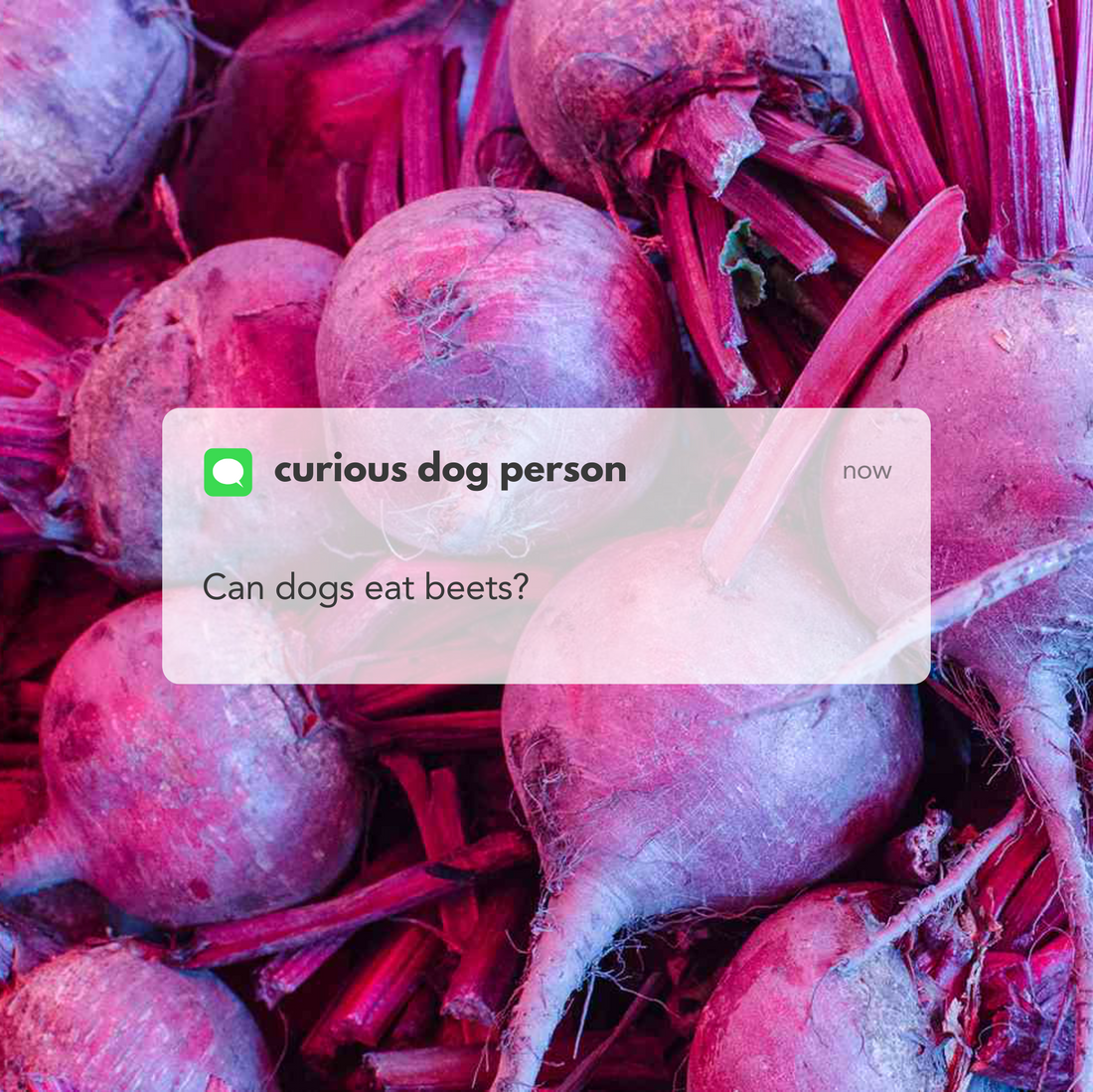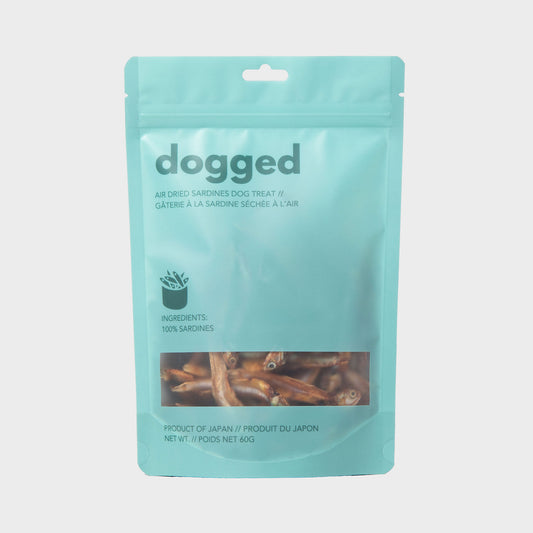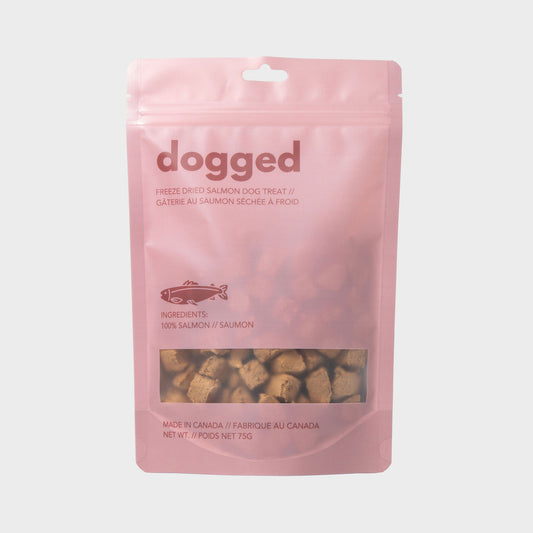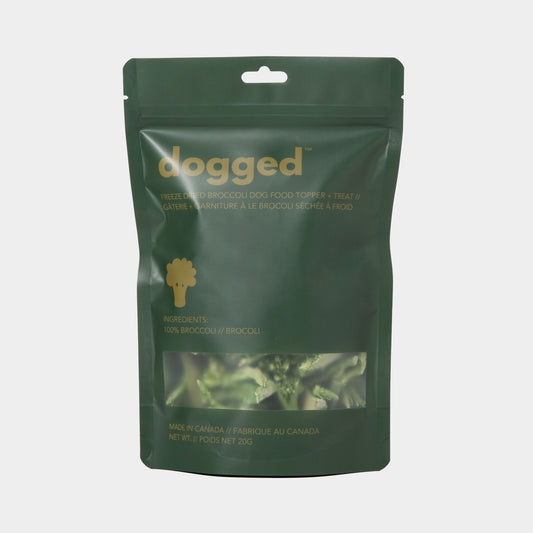
Can Dogs Eat Beets? A Vibrant Superfood for Your Pup
Beets are truly known for their vibrant red-purple color and earthy flavor but are they safe and healthy for dogs? The answer is yes, in moderation. This root vegetable is loaded with essential nutrients that can benefit your dog's health, but it's important to know how to prepare them properly and what to watch out for. In this article, we’ll go through nutritional benefits, potential risks, and the best ways to incorporate beets into your dog’s diet.

Nutritional Benefits of Beets for Dogs
Beets can offer power nutritional boost for our canine friends. Here are some of the key benefits:
Rich in Fiber
Beets are high in dietary fiber, both soluble and insoluble. This supports healthy digestion and regular bowel movements. Fiber also helps regulate blood sugar and cholesterol levels.
Loaded with Antioxidants
Beets are a great source in antioxidant, betalains which can help fight inflammation and oxidative stress in your dog’s body.
Vitamins and Minerals
Beets contain vitamin C, folate, potassium, and manganese. These nutrients support immune function, heart health, and cellular repair.
Support for Liver Function
Beets may promote detoxification by supporting liver health, thanks to a compound called betaine, not to be confused with betalains. This can help the liver process and remove toxins more efficiently!
Boosted Circulation
Beets are a source of natural nitrates which support healthy blood flow, potentially improving stamina and heart function in active dogs.

Potential Downsides of Feeding Beets to Dogs
Kidney Stones
Beets are relatively high in oxalates, which can contribute to the formation of kidney stones in dogs prone to them. Consult your vet if your dog has experienced kidney issues before feeding beets.
Sugar Content
Beets are somewhat high in natural sugars compared to other vegetables. Dogs with diabetes or weight concerns should only eat beets in small to moderate amounts.
Allergies or Sensitivities
Introduce beets slowly and watch for signs of digestive upset or allergic reactions like itching, hives, red inside the ears, or diarrhea.

How to Safely Serve Beets to Dogs
To maximize health benefits and minimize risks, follow these serving suggestions:
Cooked Beets
Lightly steamed or boiled beets are the easiest to digest. By cooking, it breaks down the cellulose wall of the plant providing some relief of the pancreas. Reminder: skip the salt, butter, and seasoning.
Raw Beets
Raw beets can be fed in small, grated amounts. Make sure they’re washed thoroughly and cut into manageable pieces to avoid choking.
Freeze-Dried Beets
These make for crunchy, nutritious treats. Just make sure they’re single-ingredient and free of additives. Check out dogged’s freeze dried beets topper here.
Avoid Canned Beets
Canned beets often contain salt or preservatives that aren’t safe for dogs. There are some great brands that don't add preservatives but do your research and read those labels ahead of buying!
Portion Control
Start small, about a teaspoon of cooked or grated beet per 10 pounds of body weight is a good guideline.
Don’t be alarmed if your dog’s pee or stool takes on a red or pink hue after eating beets, this is VERY normal. The natural pigments in beets, called betalains, can pass through the digestive system and urine unchanged. It’s harmless, but good to know so you’re not caught off guard during your next backyard or walk cleanup!
Final Thoughts
Beets are a colorful and nutritious veggie that can be a fun addition to your dog’s diet when served properly. From supporting digestion and liver health to offering antioxidant protection, they’re more than just a pretty root. As always, introduce new foods very slow and check with your vet if your dog has any pre-existing conditions. Whether raw, cooked, or freeze dried, beets can be a healthy and tasty treat for your pup.






